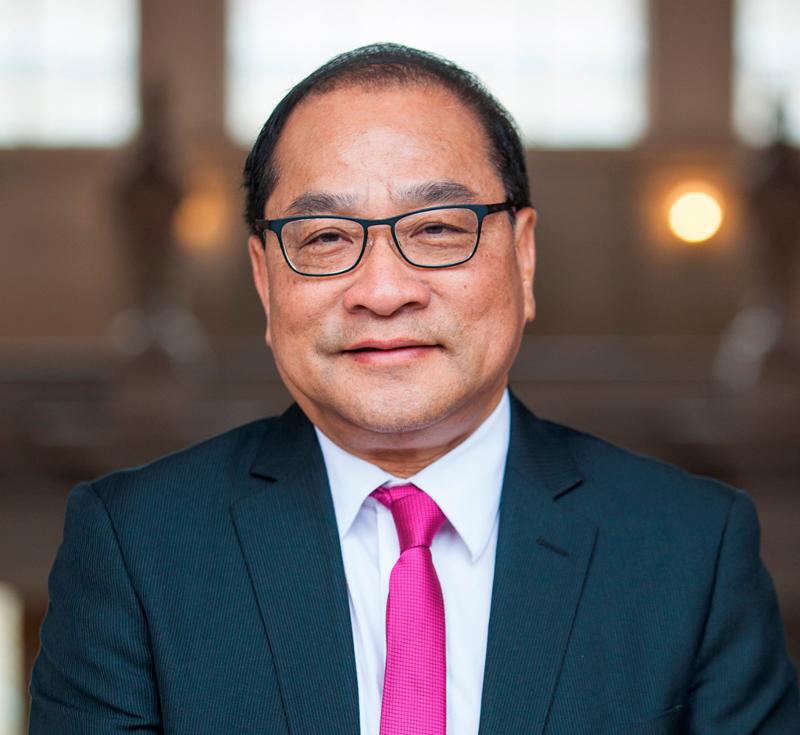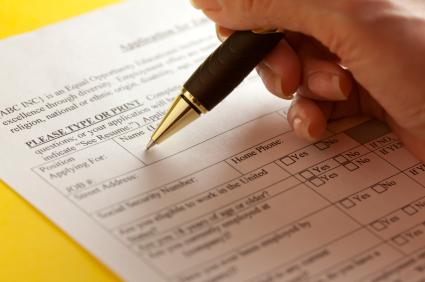|
Message from the Director
|
 |

This October, we commemorated the 30th anniversary of the 1989 Loma Prieta earthquake. Every year since that fateful day when the 6.9 earthquake hit San Francisco at 5:04pm on October 17, we take time to remember the lives lost, the properties damaged and to remind San Franciscans of the importance of being prepared for the next Big One. Living in earthquake country, we are vulnerable to earthquake events like the
4.7 earthquake in Hollister, 4.5 earthquake that hit Walnut Creek and 3.6 earthquake in Pacifica that occurred in the last two weeks. The City remains vigilant and pro-active - such as requiring the seismic retrofit of soft story apartment buildings, and improving policies - to help ensure the private buildings that house our residents, businesses, and visitors continue to be safe.
In partnership with the Mayor's Office, City Administrator's Office and Office of Resilience and Capital Planning, the Department of Building Inspection continues to actively participate in the evaluation and development of important seismic safety programs that began in the recovery phase from the Loma Prieta's impact and the City's
Earthquake Safety Improvement Program.
Since 1989, we've implemented various programs, including the Unreinforced Masonry Building program
and have had over 99% compliance by the affected property owners. In 2013 and 2014, respectively, we launched the
Mandatory Soft Story
and
Private Schools Evaluation
programs to target vulnerable residential buildings with soft story ground floors and require the evaluation of private school buildings for seismic vulnerabilities. With 98% compliance in terms of filed permits, and 65% completion compliance of the Mandatory Soft Story program - private property owners have invested about $250 million in retrofits so far, and will reach an estimated $385 million by the end of this program. More than 72,000 people are now living in retrofitted buildings in San Francisco, and about 111,000 will be at the program's completion in late 2020.
Over the last decade, we have worked to strengthen our existing
and new
building
s
today so
they are much more likely to
withstand the next earthquake. We cannot prevent an earthquake
, nor
prevent damage to our buildings, but we can ensure that our older buildings
are
retrofitted to help protect
residents
and reduce
the
potential damage
and
disruption to our properties, and the people
living
in these buildings.
So let's learn from our recent history - and get ready now for the next Big One.
Sincerely,

Tom C. Hui, S.E., C.B.O.
Director and Chief Building Official
|
 |
 |
Sign Up to Attend a Hands-On Emergency Training in your Neighborhood
Through the Seismic Safety Outreach program delivered by our community partners, Self Help for the Elderly and Community Youth Center, we have reached over 68,000 residents, conducted 615 trainings and graduated over 3,400 Seismic Safety Ambassadors in fiscal year 2018-2019 throughout San Francisco. This four year program has been engaging residents in our
multi-lingual, diverse communities in to help prepare them for the next disaster.
If you'd like to attend a workshop in your neighborhood, contact the email provided below for your Supervisorial District. Workshops can be provided in English, Chinese, Spanish and Tagalog. Please let the coordinators know if you have a language preference (English, Chinese, Spanish and Tagalog) for the workshop you'd like to attend. The Coordinator will provide you information on the location, time as well as class training details that you'll need for the upcoming class available in your area. Both organizations can provide the classes to all age groups.
| Supervisorial Districts |
Community Partner |
| 3, 4, 7, 11 |
Self Help for the Elderly:
|
| 1, 2, 5, 6, 8, 9, 10, |
|
|
 |
Connect with your community and together we can stay resilient.
Here are three simple steps to help you prepare today:
- Conduct drills of what to do during an earthquake: DROP, COVER and HOLD ON.
- Communicate with family and friends. Make a plan so you know who to find and where to find them when a crisis occurs.
- Whether you are at home or at work, make sure you have an emergency kit with supplies lasting for at least 3 days.
Please find below some resources to help you get prepared.
|
 |
|
Announcement: One-Year Pilot Fee
Waiver For 100% Affordable Housing And Certain Accessory Dwelling Unit Projects
Effective October 13, 2019, Ordinance No. 207-19 waives for one-year Department of Building Inspection's Plan Review, Building Inspection (excluding Electrical and Plumbing), Records Retention and Site Surcharge Fees for the following three types of projects:
1. 100% Affordable Housing Projects;
2. Accessory Dwelling Units on properties or in buildings
containing no more than four units; and
3. Accessory Dwelling Units located on a nonprofit, charitable organization's residential property.
The Ordinance is retroactive to June 1, 2019 and will last until June 1, 2020. Eligible 100% Affordable Housing and Accessory Dwelling Unit projects that applied for building permits June 1, 2019 to October 12, 2019 will receive a refund of the applicable waived fees paid.
For eligible 100% Affordable Housing and Accessory Dwelling Unit projects that applied for building permits on or before June 1, 2019 and had not received a final Certificate of Occupancy by the June 1, 2019 retroactive date, the fee waiver applies only to applicable fees that had not been paid as of June 1, 2019. Fees paid before June 1, 2019 are not eligible for refunds.
For more information, please visit or contact the Department of Building Inspection: 1660 Mission Street, San Francisco, CA 94103 or email [email protected].
|
 |
|
Commercial Property Owners:
Turn in 1 of 3 Required Accessible Business Entrance Forms by December 1, 2019

In early September, in coordination with our partners at Office of Small Business, Public Works and Planning, we sent a six-page Notice of Compliance Deadline to over 9,000+ property owners that own over 19,000 commercial storefronts in San Francisco as part of the Accessible Business Entrance (ABE) program. The ABE program helps property owners comply with state and federal accessibility laws and helps people with disabilities gain greater access to goods and services offered by San Francisco businesses.
Property owners receiving the notice were informed of the need to submit one of three documents (Pre-Screening, Waiver or Category Compliance Checklist form) to DBI to comply by the upcoming December 1, 2019 deadline. Failure to turn in the required documentation by December 1 will result in code enforcement action by DBI.
DBI has updated our website and voicemail information to respond to frequently asked questions we've received in the last several weeks. If you own a residential building and do not provide goods and services to the public through a commercial storefront, submit a completed Pre-Screening form to exempt your property from this Program. If you've contacted our ABE program staff and haven't heard back, please be patient as we review each call, email and mailed documents we've received over the last several weeks.
|
 |
|
2019 Building Code Cycle Review
Underway
The State has completed their process for updating the State's Building Code. As a result, DBI's Technical Service Division staff has been hard at work reviewing the new code changes and have incorporated the City's related passed ordinances to the Building Code. This year-long process has included discussions at DBI's Citizen Advisory Committee
and its subcommittees
, and the Building Inspection Commission. The Building Code ordinance is expected to be introduced before the Board of Supervisors in the Fall to ensure the code changes are codified into San Francisco's Building Code by January 1, 2020. Through this process, DBI ensures the safe construction and alteration of San Francisco's more than 200,000 buildings.
|
 |
 |
We continue to hire more staff to ensure we are providing the highest levels of effective and efficient customer services. Please give a big welcome to our newest hires.
Access our staff directory
here
.
Thomas Moyer
|
|
|
WHO WE ARE
DBI is the regulatory building safety agency responsible for overseeing the effective, efficient, fair and safe enforcement of building
, electrical, plumbing, disability access and housing codes for the City and County of San Francisco's more than 200,000 commercial and residential buildings.
|
|
CODES CORNER
Read up on our most recent code updates:
- G-20: Interim Criteria - Building Permit Application Routing to City Agencies
Read More |
|
LEGISLATIVE UPDATE
Stay up to date on the most recent proposed and passed legislation affecting DBI. Here are some listed below:
Triennial Building Code Update.
The 6 ordinances updating the SF Building Code were introduced at the Board of Supervisors on October 1, and granted a 30-day waiver. We expect these to be on the Oct. 21 Land Use Committee Agenda.
Ordinance amending the Housing Code to revise the requirements for heating in residential rental units.
This proposed ordinance from Sup. Peskin changes section 701 of the City's Housing Code to conform to state law. It will require all residential rental units be provided with heating facilities capable of maintaining a room temperature of 70 degrees at a point 3 feet above the floor for a specified number of hours daily.
Plumbing Code Cross-Connection - a proposed ordinance sponsored by SFPUC and DPH that deletes a local amendment referring to SFPUC rules and regulations and adds local cross-connection controls for beverage dispensers and industrial water chillers, as well as requires testing for backflow prevention assemblies/devices.
File No. 181216 - Controls on residential demolition. Introduced by Supervisor Peskin on Dec. 11, amends the Planning and Building Codes to increase substantially penalties for violations, revises definitions for Alterations and Removal, imposes new Conditional Use reviews, requires pre-permit inspections of alleged dry rot.
|
|
|
COMMUNITY OUTREACH
If you would like DBI
to attend your association or organization's meeting to discuss DBI Programs or any other DBI related topics, contact [email protected].
|
|
EVENTS
|
Date: Oct 19, 2019
Time: 11am-2pm
Location: Portsmouth Square
|
|
|
 |
|